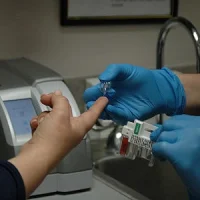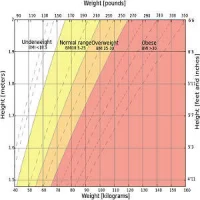Patients with diabetes have a 50% increased risk of dying following an acute myocardial infarction (AMI) compared with those who've had a heart attack but don't have diabetes, the largest study of its kind ever conducted has revealed.
Examining data on more than 700,000 AMI patients, UK researchers found that those with diabetes had a 65% increased risk of death if they had suffered an ST-elevation myocardial infarction (STEMI) and a 39% increased risk of death after non-STEMI, compared with those without diabetes.
Senior author Chris Gale, MD, PhD, of Leeds Institute of Cardiovascular and Metabolic Medicine, University of Leeds, United Kingdom, said: "These results provide robust evidence that diabetes is a significant long-term population burden among patients who have had a heart attack."
"Although these days people are more likely than ever to survive a heart attack, we need to place greater focus on the long-term effects of diabetes in heart-attack survivors," he noted in a University of Leeds press statement.
Speaking to Medscape Medical News, Dr Gale emphasized that, while it is "good news" that a patient has survived a heart attack, this is an indication that, if "they have got active diabetes that's causing end-organ cardiovascular problems…they're high risk and they should be aggressively treated."
He said that includes ensuring that patients are on the right medications and taking their tablets appropriately, that their blood glucose and cholesterol levels and blood pressure are well controlled, and that they follow advice on lifestyle change, such as losing weight, exercising, and stopping smoking: "The partnership between cardiologists, GPs, and diabetologists needs to be strengthened, and we need to make sure we are using established medications as effectively as possible among high-risk individuals."
Dr Gale noted that another question around the increased post-AMI mortality risk among diabetic patients is whether cardiovascular medications are "working equally as well in diabetics as they are in nondiabetics, and if they're not, why."
He added: "Certainly if they're not, why aren't we developing new medications that are more efficacious and that could be diabetes-specific?"
Mike Knapton, MD, associate medical director at the British Heart Foundation, the UK charity that funded the study, said that it is the first work "to conclusively show" that diabetes itself has an adverse effect on survival.
He continued: "This research highlights the need to find new ways to prevent coronary heart disease in people with diabetes and develop new treatments to improve survival after a heart attack."










